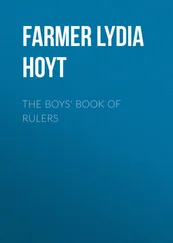When she was fifteen, Joan became responsible for a small cadre of orphaned children. Forty or so of them, in various states of fear and animal longing. Though her parents were long dead, she still had claim to the family home and land; she had fire on her side, which she could raise from the earth by placing her hands on the ground long enough to pull telluric currents alive in hellish swirls. She’d learned to control it. Napalm from the ground up.
When threatened, burn.
She kept the children fed. She kept them sheltered and together. But when they were attacked, the danger was always mass death. CIEL militants who came for them didn’t want just one of them, they wanted all of them, for food or slave labor or both. And so, she’d constructed a plan for hiding a field of children.
She dug forty-one children’s graves on the land where her father had once grown vegetables, carefully lining the graves with mud-green industrial plastic left over from farming, with enough plastic up and outside of the grave to hold the dirt. She designed forty-one rubber tubes leading to an underground airshaft—a vast tubular cave with an underground river—and placed the tubes down in the graves, at head level, for breathing. And when they faced attack, the forty-one children ran to their forty-one gravebeds and dove into them and pulled the plastic sheets over them, forcefully enough to cover themselves with dirt, and breathed life under death through the rubber tubes.
All anyone who arrived saw was the evidence of a mass burial. A mass murder. Little mounds of dirt clearly meant for children. There, she thought, they would be safe.
But she underestimated the power of evil. Or, perhaps, the power of power. One night, there came the familiar crack and thunder in the sky of a CIEL probe entering the atmosphere. The children went into action, burying themselves alive with great precision and speed. All night Joan watched over them, waiting for a glimpse of a Skyline. What she did not know was that CIEL had attained the technology to hide the elevators, to render them invisible. And that they could detect the heat of the little bodies still alive beneath all that dirt. They pumped methane gas into the tiny graves, displacing enough oxygen to make the children cough and sputter against their breathing tubes, asphyxiating them all in their false sleep. Like killing moles or rats.
Joan herself noted the hint of a chemical scent for a moment, but then chemical smells weren’t uncommon in this place.
In the morning, no one woke.
One by one she dug them up. She lifted their blue-gray bodies out of the holes and placed them on the higher ground next to their graves.
The grief that entered her body then was worse than what she’d felt when her parents were killed. Worse than when her brother had been shot and captured. Her grief for these mutating children rose in her like a second self, another body overtaking her own, until it was not an abstract sadness but a material, weighted thing. And the grief turned to rage. And the rage rocked her head back and shore the clothing from her body and cleaved her sight and the song sound emerged in her skull, only so loud this time that it seemed to break every tooth in her mouth. The ground she stood on rumbled and tilted and dropped her to her knees. Recovering her balance, she placed both hands flat on the dirt. Her eyes blue and blazing. The light at her head dancing alive. And then her hands shot light and sound in a thunderous lateral pulse across the dirt.
Forty small corpses coughed and gasped, shaking their heads in bewilderment, looking around at each other covered in dirt and smelling of death, as if to say, Am I dead, or born?
A miracle.
They lived less than twenty-four hours. By the end of the next day they had dropped dead again, some wearing expressions like the ash-covered corpses at Pompeii.
Her power, then, was impotent. Forever after, the comrades she tried to revive all died the same way, a day or so later. She had the power only to bring death twice.
Her resurrections, she learned eventually, only succeeded in plants and organic material. Her powers were useless in terms of saving humans. Her powers were of the dirt.
She knows now, then, that she can bring her brother back to life, only to watch the life drain from him in a second death, one of her making. Or she can let him die his own death, free from the wrong miracle of her.
She stares at the worms spreading over his forehead and skull, almost like hair.
“Do it,” Leone says. “I’ll bury him.”
The walls of the cave glow brown and black and orange, shapes running and mutating across them. Joan watches Leone add peat to the fire, changing the patterns of the flames, then retrieve Little Bee from her boot sheath and hold the blade into the flame. Joan turns and stares at her brother’s corpse. In this shadowy light, he looks like a film of someone sleeping.
The line between living and not. In medicine, they don’t call bringing the dead back to life “resurrection.” They call it Lazarus syndrome: the spontaneous return of circulation. You’d think that, after all these years and dead gods, they’d have used a less biblical term. And what is the word for what she is about to do?
Joan looks at her hands as she washes them in a bowl, then watches her own hands between Leone’s hands, Leone washing her hands for her—a mixture of silver and lavender.
Out of the blue, Leone says, “Remember the ribbon eels?” and her face lights up.
Joan’s heart beats up in her chest for a long minute. She remembers: a month’s respite from war she’d spent with Leone, near Australia. The neon blue and yellow backs and bellies of ribbon eels, sliding through ocean water, alongside them in an underwater cave pool. The two of them laughing.
If she closes her eyes she can almost remember that sound, Leone’s laugh.
In the subterranean caves of Christmas Island, a variety of hermaphroditic and protandric species thrives. The ribbon eel is one of them, an elegant creature with a long, thin body, high dorsal fins, and huge nostrils. Juveniles and subadults are jet-black with a yellow dorsal fin; females are yellow, with a black anal fin with white margins. The adult males turn blue with a yellow dorsal fin. As they mature, they would swap genders. Eels that were born male grew into females that changed color and laid eggs. They could live twenty years this way, their gender entirely fluid.
Without looking up she says to Leone, “Remember to make the incision just underneath the rib, about—”
“I know,” Leone says, “about the length of your finger.” Leone holds Joan’s left hand, the hand missing its pinkie. For a while they just sit there on the ground like that.
“Okay,” Joan says. “Now.”
Leone kneels and Joan helps her to rest Peter’s head and shoulders up onto Leone’s thighs. His arms stretch out to either side of him. His head tilts, his lips part. How serene the dead can look, like dreamless sleepers. Leone, in one perfect motion, leans in and presses the skin of the dead brother’s flesh smooth, then slices open something like a mouth just below his last right rib. A dark red, almost black ooze emerges in a thin line.
Without hesitation, Joan slips three of her fingers through the ooze into the wound. Inside, his body is moist and cool and wrong. She places her other hand on his shoulder. She closes her eyes, drops her head, and slows her own breath to next to nothing. She listens for blue light.
The heart, filled with electrical impulses—without moving a muscle, she reaches for it with her entire body.
A low hum strums the floor of the cave, the walls. The faint crackle of the fire. Then the hum crescendoes and a flutter of batwings rise and fall.
Читать дальше












